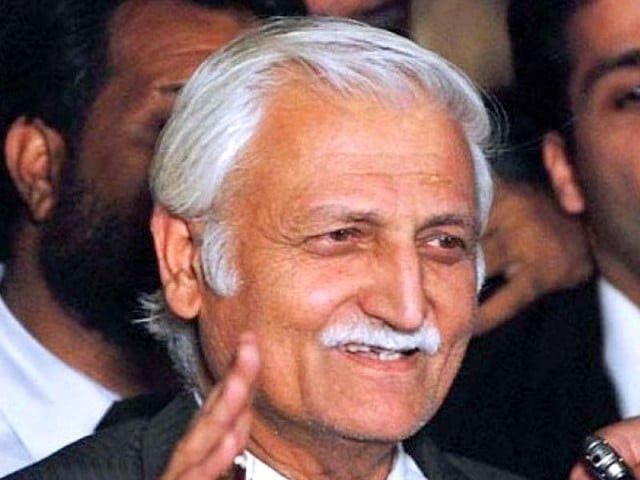Legal matters: Senate committee debates judicial appointments
PPP lawmaker calls for dispersal of power to appoint senior judges.

Farhatullah Babar. PHOTO: FILE
Taking the lead in raising the questions, Pakistan Peoples Party’s (PPP) Senator Farhatullah Babar scrutinised the existing process for judicial appointments. The veteran PPP leader said “The selection system excludes the president, prime minister and practically the parliamentary panel on judicial appointments.” The senator said that the authority to senior judges was concentrated in the hands of one institution.
The dispersal of power to appoint judges is necessary so that judges with diverse views and jurisprudential acumen adorn the bench rather than packing the court rooms in a manner that transforms the institution into a monolithic body, Babar added.

The PPP lawmaker said that the foremost concern of the house should be to provide some avenue of justice to the most vulnerable section of society—the missing persons and those who have disappeared without a trace allegedly at the hands of agencies.
Meanwhile, former senator SM Zafar proposed an overhaul of the existing judicial system, calling for a constitutional amendment to ensure that ‘suo moto’ jurisdiction of the apex court is used with “restraint.” Suo motu emerged as a household phrase during Iftikhar Chaudhry’s stint as the top judge. Chaudhry extensively used the legal tool to probe populist issues during his time as the chief justice of the Supreme Court.
The senior lawyer said that revision powers of the courts as given in civil and criminal cases should altogether be abolished and judges should play a proactive role.
Secretary, Law and Justice Commission of Pakistan Muhammad Sarwar Khan underlined the need for strengthening parliamentary oversight to evaluate the implementation of law.
During the discussion, Senator Hasil Bizenjo said that parliament has to assert itself and take bold steps to ensure delivery of speedy justice.
Similarly, Senator Hafiz Hamdullah proposed that Sharia courts should be established at district level in addition to increasing the number of judges and courts across the country. Hamdullah also called for the introduction of Jirga system for speedy justice.
Prior to the 18th Constitutional Amendment, appointments to the top court were made by the president, on the recommendation of the Chief Justice of the Supreme Court.
However, after the passage of the 18th and 19th Constitutional Amendments, a new Judicial Commission and parliamentary panel were established for appointments. Under the new rules, the executive branch has limited authority over the appointments of senior judges.
Published in The Express Tribune, August 20th, 2015.



















COMMENTS
Comments are moderated and generally will be posted if they are on-topic and not abusive.
For more information, please see our Comments FAQ